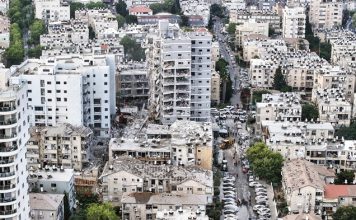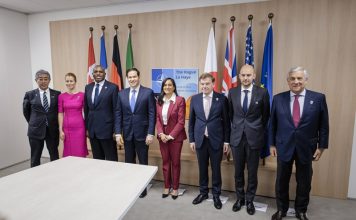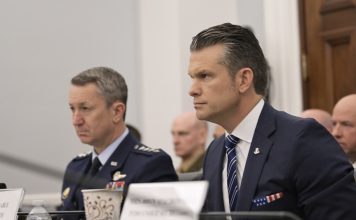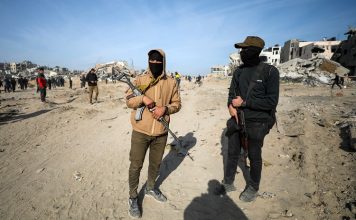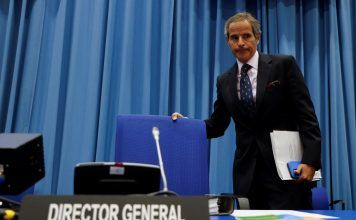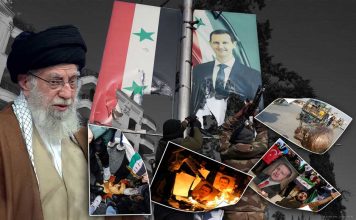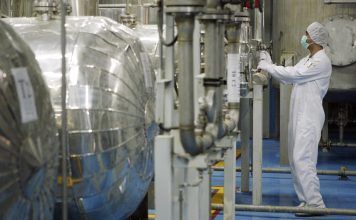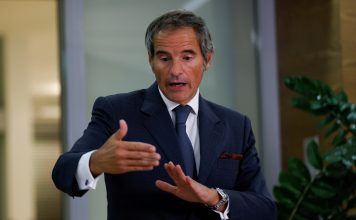By Ahmad Rafat
The Islamic Republic, Saudi Arabia, China, Israel, and the U.S. have been engaged in a power play in the Middle East recently, each trying to strengthen its influence in the region.
While Israel and the U.S. have played a significant role in the Persian Gulf for years, China is the newcomer to the game.
China brokered the peace talks between Saudi Arabia and Iran in Beijing in March, successfully restoring diplomatic ties between the two countries which had been severed after an attack on the Saudi embassy in Tehran in January 2016.
The reopening of the Iranian embassy in Riyadh on June 6 coincided with a visit by U.S. Secretary of State Antony Blinken to Saudi Arabia.
Although Saudi Arabia has yet to reopen its embassy in Tehran, its diplomats are back in Iran to lay the groundwork for resuming their diplomatic work there.
However, the resumption of diplomatic ties between Saudi Arabia and Iran does not signal an end to the hostilities between the two countries, which dates back to the early days of the 1979 Islamic Revolution.
OPINION: The Solution to the ‘Iran Problem’ is Regime Change
Despite the apparent normalization of diplomatic ties, most problems between the two countries remain unresolved. It is doubtful that any of these issues will be solved soon, and there is no sign that the hostilities between the Islamic Republic and Saudi Arabia will cease altogether.
The Yemeni civil war, which started in September 2014, continues between the Saudi-backed government in Sanaa and Iranian-backed Houthi rebels, despite recent talks between the warring factions.
And in Lebanon, which has far greater significance for the Islamic Republic than Saudi Arabia, Tehran’s meddling in the internal affairs of the country prompted Saudi Arabia and several other countries to take their investments out of Lebanon, which at one point was known as the “Middle East’s Switzerland,” resulting in the collapse of that country’s economy.
Saudi Arabia has called for the Islamic Republic to stop using its Shia proxies, i.e., Hezbollah and Amal Movement, to interfere with Lebanon’s internal affairs, which has prevented the country from electing a new president since last October.
Iran could declare its foreign policy a success in Syria, given Saudi Arabia’s consent for Bashar al-Assad’s regime to rejoin the Arab League. Tehran regards Bashar al-Assad’s trip to Jeddah on May 28 to attend a meeting of the Arab League as a victory.
Tehran could argue that conservative Arab countries that are Saudi Arabia’s allies have been forced to accept the “Axis of Resistance,” which includes Iran and its regional allies, as an undeniable reality.
One issue that Saudis insist on is an end to the trafficking of illicit drugs, particularly the synthetic Captagon tablets (Fenethylline, amphetamine, and theophylline), to Lebanon, Syria, and the Persian Gulf States.
Captagon is reportedly manufactured in southern Lebanon, which is under Hezbollah’s control, and distributed throughout the Middle East and Europe with the help of the Islamic Revolutionary Guards Qods Force (IRGC-QF) and Syria’s 4th Armored Division, under the command of Major-General Maher al-Assad (younger brother of President Bashar al-Assad).
ANALYSIS: A Marriage of Convenience Bolsters Iran’s Mideast Presence
Saudi Arabia is extremely concerned about the trafficking of Captagon and has repeatedly urged Syria and Iran to stop the drug’s widespread and organized smuggling operations. However, despite promises by Damascus and Tehran, no meaningful action has been taken to halt the trafficking of the Captagon.
As part of its continued efforts to diminish U.S. influence in the Persian Gulf, Iran has proposed a naval coalition with Saudi Arabia and other Persian Gulf States to protect the commercial shipping and oil tankers in the sea corridors.
However, Saudi Arabia is reportedly not keen on the idea, given that Iran’s proposal calls for the IRGC Navy to be the principal part of the coalition, which Riyadh considers problematic. Saudis regard the IRGC, particularly its extraterritorial arm, the Qods Force, as a terrorist organization.
During his recent visit to Tehran, Saudi Foreign Minister Faisal bin Farhan Al-Saud, refused to attend a joint news conference with his Iranian counterpart, Hossein Amir-Abdollahian, in a room where a picture of the late Lieutenant-General Ghasem Soleimani, the former commander of the QF, was on the wall. As a result, the news conference was moved to a different room.
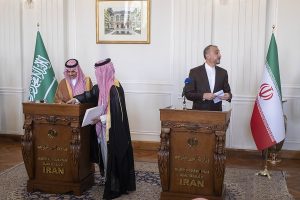
As part of its broader foreign policy, the Islamic Republic plans to take advantage of the “diplomatic ceasefire” with Saudi Arabia and normalize its ties with other Persian Gulf States. Foreign Minister Amir-Abdollahian’s recent visits to Qatar, Kuwait, Oman, and the United Arab Emirates (UAE) were part of these efforts.
Similarly, Saudi Arabia hopes to capitalize on the Beijing agreement and resolve its problems with its long-time ally, the U.S. Meanwhile, the U.S. wants to see Saudi Arabia join the Abraham Accord, signed between Israel and the UAE on Aug. 13, 2020. Subsequently, a few other countries, including Bahrain, signed the agreement, but Saudi Arabia has yet to join the accord.
However, Saudi Arabia has said it would sign the accord once Israelis and Palestinians have reached a lasting agreement. The powerful Saudi Crown Prince Mohammed bin Salman Al Saud’s efforts aim to change U.S. foreign policy regarding his country.
Since Democrats took over the White House, Saudi Arabia’s request for the latest military hardware has been ignored. U.S. President Joe Biden and his administration have tried to establish a working relationship with the Islamic Republic, one of the current points of contention between Riyadh and Washington.
Israel and Saudi Arabia completely agree on this issue, and their disagreement with the U.S. regarding Iran has enabled China to strengthen its position in the Persian Gulf. It is noteworthy that, contrary to other superpowers, China’s main concern is its economic interests.
China is currently the principal economic partner of Saudi Arabia, the Islamic Republic, and the UAE. While Iran has been wrestling with an economic crisis for several years, it expects an improved diplomatic relationship with Saudi Arabia to develop trade ties and encourage Riyadh to invest in Iran.
Saudi Investment Minister Khalid al-Falih said his country could invest in Iran immediately. However, Minister al-Falih’s remarks were more of a publicity campaign than a realistic goal.
The Islamic Republic is under U.S. sanctions and blacklisted by the Financial Action Task Force (FATF), which prevents any country, including Saudi Arabia, from investing in Iran. Also, the Saudis are not eager to invest in Iran in the current situation.
What is possible right now and has happened already is that the volume of trade between Iran and Saudi Arabia has increased. The two countries traded only $40,000 in goods last year. Since the Beijing agreement two months ago, Tehran and Riyadh have traded $150 million in goods. That amount could reach $1 billion by the end of the current year.
However, that figure is still far less than the $4.7 billion in goods traded between Iran and the UAE last year.

